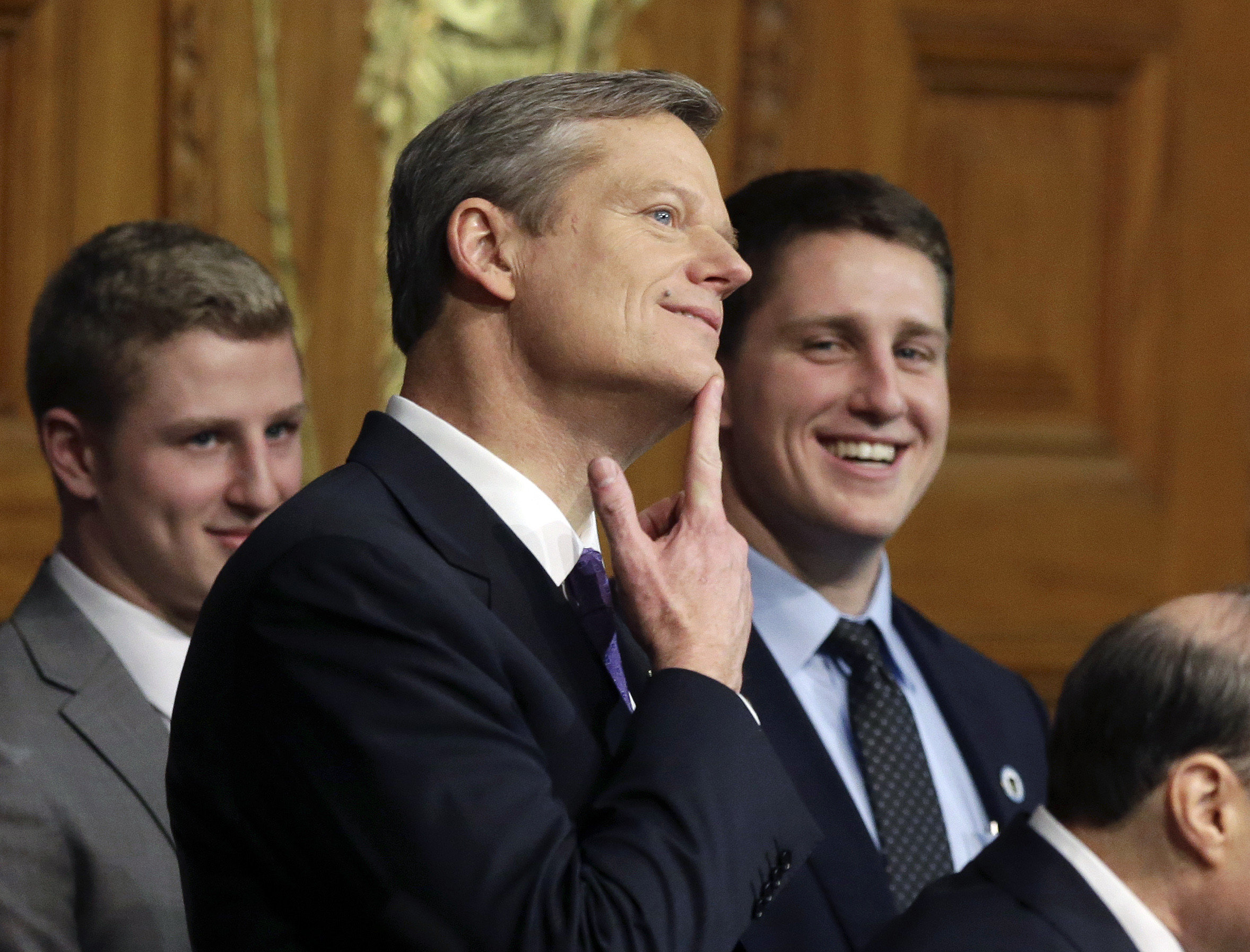
Massachusetts has a new Governor and the most popular question for Bay State political observers yesterday was how Baker’s administration will differ from that of now former governor Deval Patrick. National political discourse suggests the Baker v. Patrick match-up features two opposing views on government: too often the problem according to Republicans and regularly the solution for Democrats.
This narrative does not apply to Charlie Baker. Indeed, both he and Deval Patrick see vital, necessary roles for government. Much to the dismay of the Tea party, and most of the national Republican stars, Governor Baker likes government.
I submit that a comparison of Charlie Baker’s inaugural speech yesterday and Deval Patrick’s final State of the Commonwealth address last January makes their respective takes on the role government should play, and their conceptualization of Massachusetts residents, clear. And it boils down to: consumer OR citizen first? Baker expects government treat residents in ways commensurate with the best models of efficient customer service. In stark contrast, Patrick understands residents as a part of the community and it is government's role to empower all citizens to see themselves as interconnected so that the Commonwealth grows.
Both these visions have firm theoretical homes in Political Science and Public Administration theory and research. In the consumer model, also coined “new public management” (kissing cousins of neoliberalism), government acts best when it takes on the values of the private market. Concerns such as efficiency, transparency, and accountability are all central. Government is vital and best serves citizens by maximizing the dollars they put into government and meeting their basic needs quickly and efficiently. Governor Baker’s inaugural speech made plain this is the model he envisions for Massachusetts. He promised to:
- · “ensure full price and performancetransparency”
- · make our government “efficient,responsive, and innovate”
- · assure “accountability and transparency”
- · work to eliminate “lapses in performance”
- · examine “every line item” in the budget
- · determine where “there are efficienciesto be gained”
- · “reduce red tape and streamline”
While outlining these commitments, Governor Baker highlighted the role of social entrepreneurs who, by definition, use business savvy to find individual-level solutions to problems.
Advocates of the new public management approach are many though its critics question its reliance on individuals to have the resources and/or efficacy to name the grievances they feel and aim them at government. The transactional nature of new public management, and its replication of market principles in government, leaves values like empowerment and community on the sideline. For many, public sector values should often be distinct from those of the private sector.
Count former Governor Deval Patrick amongst these critics. Reflective of participatory democracy and TH Marshall’s accounting of social citizenship, the Patrick administration reasoned from view that it is the responsibility of government to empower its citizens, to reach out and not wait to be called upon. For adherents of participatory democracy and advocates of social rights, it is in the empowerment of all citizens that the state flourishes – because all have their talents harnessed, developed, and utilized by the Commonwealth. Far from transactional, government is at its best when it is transformative and conjuring forth the connective. Engaged citizens grow and contribute to government and consider community and individual needs interwoven.
This vision is replete in Gov. Patrick’s January 2014 address:
- “And I challenge all citizens to consider what they can do to make our Commonwealth stronger. …All this and more is about making government more accessible for you to shape and to strengthen - the way a democracy is supposed to work. …So, for the good of the Commonwealth, I ask you to get engaged.”
- “Our strategy is a proven path to job growth, to helping people help themselves. So, tonight, I am asking you to recommit to that strategy and to working together to meet our citizens’ unmet needs.”
- “‘Community First’ is a reality, not a slogan.”
- “With all of us doing what we can, with effective implementation of our strategy and our eye on the common good, we can be confident of sustained economic growth. Economic growth matters - not just because it creates wealth, though that is good; and not just because it expands a given industry or reduces unemployment rates, though that is also good. Growth matters because it creates opportunity, and opportunity is fundamental to who we are. Every one of us has a stake in that.”
So it not that Charlie Baker and Deval Patrick disagree on the importance of government. Their divergence is far more nuanced. Governor Baker operates from a transactional, managerial posture where residents self-identify concerns and seek to have them individually and efficiently met. They use an entrepreneurial posture to solve problems. Deval Patrick’s governorship envisioned government as a key source of values harder to quantify – participation, connection, and well-being. For Baker, government is best when interactions for the consumer are clean, transparent, efficient, and personally satisfying. For Patrick, government is best when it makes facilitates citizens prioritizing the needs of all those in the community. Economic growth comes from the efficient allocation of resources and private market principles in the public sector for Charlie Baker. For Deval Patrick, economic growth is facilitated at least as much by the citizens prioritizing the social needs of all community members. Perfect equality is not the goal but the elimination of massive inequality is as it threatens democracy.
These differences extend far beyond trite debates over whether or not government is the problem. In the next four years, theory will meet practice and we will which values Bay Staters most demand in the Governor’s office.

